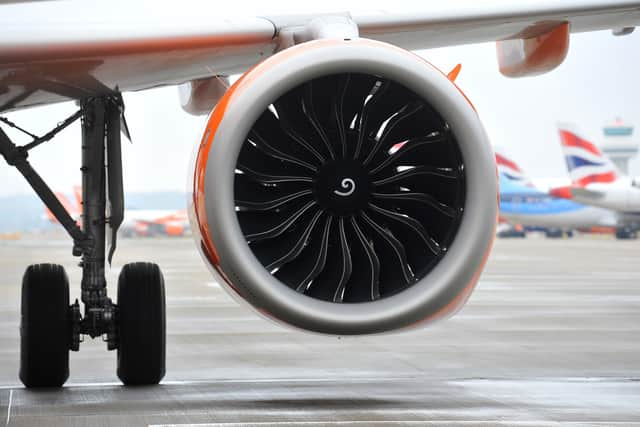‘Gatwick is a volatile polluter and shouldn’t be relied on for our jobs’
and live on Freeview channel 276
With reference to the editorial on Gatwick Airport last week:
The CAGNE committee would like to point out that any company CEO would seek for ‘business as usual’ as we emerge from lockdown but, as a county, we have to look at what is the best route forward for economic stability and a way to meet our climate emergency responsibility.
Advertisement
Hide AdAdvertisement
Hide AdAviation emits 5 per cent of global carbon – but that is not the only issue with flying. There is also the problem of N0X and vapours, which are proving to be even more harmful to the climate than the carbon produced by aviation.


Even before lockdown, Gatwick was already looking to reduce jobs with the automation of check-in, security, baggage handling and air traffic control, with cabin crew doubling up as aircraft cleaners to reduce costs.
We saw Gatwick in a similar predicament in the 2008 recession due to its volatile business model of leisure travel; we must therefore look to other industries to provide economic stability and resilience.
Time and again we have seen airlines move away from Gatwick to Heathrow when slots become available, as it is a London airport with better connectivity. Airlines also go into administration, leaving the bill for taxpayers to repatriate holiday-makers.
Advertisement
Hide AdAdvertisement
Hide AdGatwick not only relies on consumer spend and confidence, but caters for a luxury industry (70 per cent of UK flights are made by a wealthy ABC1 15 per cent of the population, with 57 per cent not flying abroad at all). Every person in this country contributes to Aviation, as it pays no VAT or duty – how many other industries can claim such a subsidy?
During lockdown, Gatwick and airlines have benefited from the furlough scheme, tax breaks ($170bn) and loans from the Government – the UK aviation minister Robert Courts said, ‘the move was a response to the closure of all UK air corridors; grants up to £8m per applicant, to be used to cover fixed costs, such as business rates.’ And yet Gatwick shareholders (GIP) have now purchased a private jet company, according to media reports, paying over $4.6bn.
We have to seek a more stable local economy for future generations, with skilled jobs in sustainable industries such as the Rampion wind farm off the Sussex shores, and not depend on an airport with a business model that is reliant upon one airline – over 80 per cent EasyJet.
The aviation industry and in particular Gatwick Airport talk about technology and planes going green when seeking a second runway (G2), but they haven’t taken into account the fact that the current global aircraft fleet of 25,000 commercial airliners have taken 25 years to produce. And it is the taxpayer who has funded research into sustainable aviation fuels (via £429m from the government).
Advertisement
Hide AdAdvertisement
Hide AdIf aviation is to be green by 2050, the new generation of non-fossil fuel burning planes would have to be developed by 2025 and in production now, ready to replace the current fleet with green aircraft by 2050. This is not a reality.
With a second runway, Gatwick would be producing 618,000 tonnes of carbon a year (possibly one million tonnes on their original figures), in addition to ‘business as usual’ – 0.77MtCO2 in 2017, rising to 0.95MtCO2 by 2028, plus N0X, vapours and the PM2.5 particles from the airfield that carry serious health concerns.
Build back greener for our county and stop relying on a volatile polluter for our jobs.